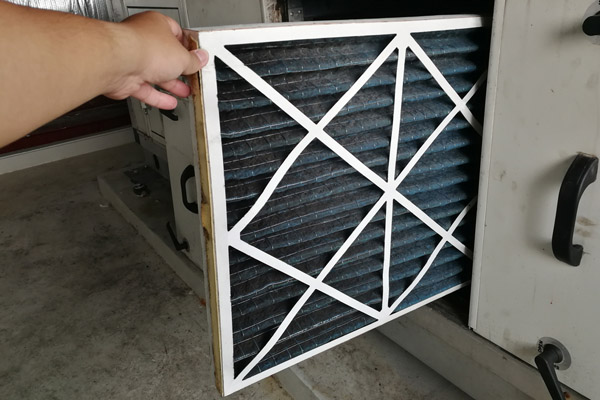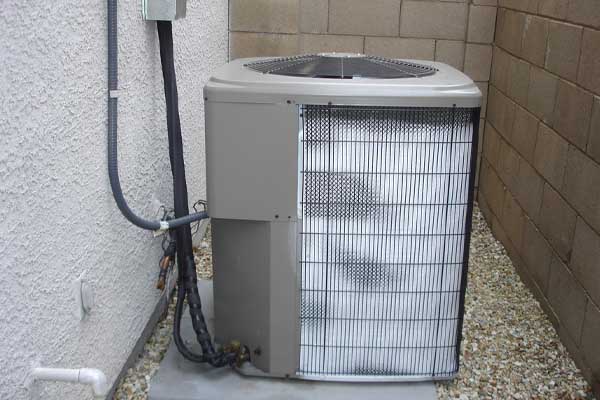Table of Contents
Nurturing your HVAC system is a mutually beneficial practice, ensuring it reliably supports you for years. Minimal investment in time and finances, aligned with the manufacturer’s guidelines, can extend your unit’s life beyond ten years. Key to this is the routine replacement of air filters, which is crucial in trapping airborne particles and protecting the system. This small action significantly influences the efficiency and longevity of the HVAC system and contributes to healthier, more comfortable indoor environments. A regular home air filter replacement helps prevent frequent HVAC issues, safeguarding your comfort and the system’s health.
Significant Consequences Of Not Changing Your Air Filter
This article delves into why the significance of regularly replacing your air filter.
How HVAC Air Filters Function

The effectiveness of HVAC air filters lies in their composition, typically made from fibrous materials such as pleated paper, reusable fabric, or spun fiberglass, all framed within sturdy cardboard. These filters are adept at capturing larger particles while still allowing air to circulate freely.
They are designed to intercept various airborne elements like pollen, pet hair, lint, mold spores, dust, and bacteria. This ensures efficient airflow and reduces the infiltration of potentially harmful substances into the system. Maintaining this delicate balance is crucial, but filters can only function optimally for a limited duration, necessitating timely replacement.
The interval for replacing an HVAC filter varies based on several factors. A practical approach is to inspect the filter each month and replace it as needed.
Factors Influencing Air Filter Replacement Frequency
The necessity to change an air filter is influenced by the type of filter in use, environmental conditions, the sensitivity of the occupants to allergens, the presence of pets, and how often the system is in operation. For most individuals, adhering to the manufacturer’s guidelines suffices. This means getting a new filter every 30 to 60 days. This timeframe is generally suitable for a standard household with one pet.
Changing the filter every 90 days is typically sufficient in homes without pets. For households with multiple pets, replacing the filter as frequently as every 20 days may be necessary. In contrast, air filters in seldom-used vacation homes or single-occupant residences without pets can be effective for 6-12 months.
Homeowners who are uncertain about the right frequency can perform monthly checks on their filters to assess cleanliness and gradually establish a replacement routine that aligns with their specific living situation and needs.
The Impact of Neglecting Air Filter Replacement

Regular air filter replacement is crucial. As contaminants accumulate, they can obstruct air flow, straining the HVAC system and leading to various complications. Homeowners who overlook the importance of timely filter changes may face escalating challenges due to this neglect. Keeping up with filter maintenance is essential for the smooth operation of the system.
High Energy Costs
HVAC systems are known for their substantial energy use, which homeowners typically find manageable within certain limits. However, clogged filters force the system to exert more effort to maintain airflow, leading to a significant rise in energy consumption and, consequently, higher energy bills.
Neglecting air filter maintenance exacerbates this issue. Compared to the inflated energy costs, air filters are relatively inexpensive. Regularly replacing filters as recommended can help homeowners manage their energy expenses effectively and stay within their household budget.
Poor Temperature Control

Impeded airflow due to clogged filters can disrupt the distribution of conditioned air in a home, leading to inconsistent cooling or heating. This imbalance results in some rooms being excessively cold while others remain overly warm.
Such disparities can be particularly discomforting during extreme weather conditions, affecting sleep quality at night and concentration during the day. Residents might move to areas with more comfortable temperatures, leading to overcrowding in some parts of the home while others remain unused.
Poor Indoor Air Quality
A congested air filter loses its efficiency over time, diminishing its capacity to trap contaminants. This decline leads to an increased influx of unwanted particles into the home’s air, posing health risks, particularly for persons with allergies or asthma who are more susceptible to these airborne irritants. Others may also experience frequent sneezing, headaches, dizziness, itchy throat, and breathing difficulties, which can disrupt daily activities.
Prolonged exposure to such contaminants due to neglected filter replacement could potentially result in more severe respiratory issues or chronic health conditions.
Frozen Air Conditioner Coils

The evaporator coils in an AC absorb heat to cool indoor air. These coils remain cool but require sufficient airflow to prevent freezing. When air filters become clogged, airflow is restricted, leading to a drop in coil temperature and eventually resulting in frozen air conditioner coils. This impedes the system’s functioning, potentially causing erratic behavior and eventual failure. Addressing this issue can be costly. Regular replacement of air filters is a more economical and proactive approach to prevent such problems from arising.
Premature HVAC System Failure
An HVAC system is designed to function efficiently for over a decade, provided it receives proper maintenance, with regular air filter replacement being a crucial aspect. Neglecting this can cause the system to overwork, leading to a scenario similar to burnout.
Excessive strain on the system’s components can accelerate wear and tear, potentially leading to an earlier-than-expected breakdown. This scenario forces homeowners to face substantial expenses, often amounting to thousands of dollars, for replacing the HVAC system.
In Conclusion
Reflect on when you last replaced your home’s air filters. Are you adhering to the recommended replacement schedule, or have they been overlooked for too long? The optimal time to take action is now.
Inspect each filter to assess its current state and take the necessary steps. Additionally, consider enlisting the services of an HVAC contractor for a comprehensive system inspection and maintenance. This proactive approach helps prevent system failure and guards against costly repairs, ultimately protecting both your HVAC system and your finances.
Contact Lake Region Energy for Expert HVAC Services

Lake Region Energy delivers top-tier heating and cooling solutions throughout Maine and New Hampshire. Our team comprises highly skilled, professionally certified technicians adept at providing exceptional HVAC maintenance, repairs, installations, and replacements. Each technician brings expertise and years of experience, ensuring your HVAC system receives the best possible service.
At Lake Region Energy, we pride ourselves on offering the region’s most competitive rates for heating and cooling services. Our maintenance services are designed to enhance comfort and energy efficiency and reduce heating and cooling expenses. Should you need an HVAC repair or a new system, we can recommend the best options for your home while respecting your budget. We back all our work with a satisfaction guarantee. To schedule a service appointment and receive a complimentary in-home estimate, call Lake Region Energy today.
For more information about our fuel deliveries and HVAC services, be sure to contact Lake Region Energy. You can click here to contact us, or you can call us at (207) 839-5500 to find out more. We offer a full line of heating and cooling repairs, maintenance services, and installations.
Related Articles:
